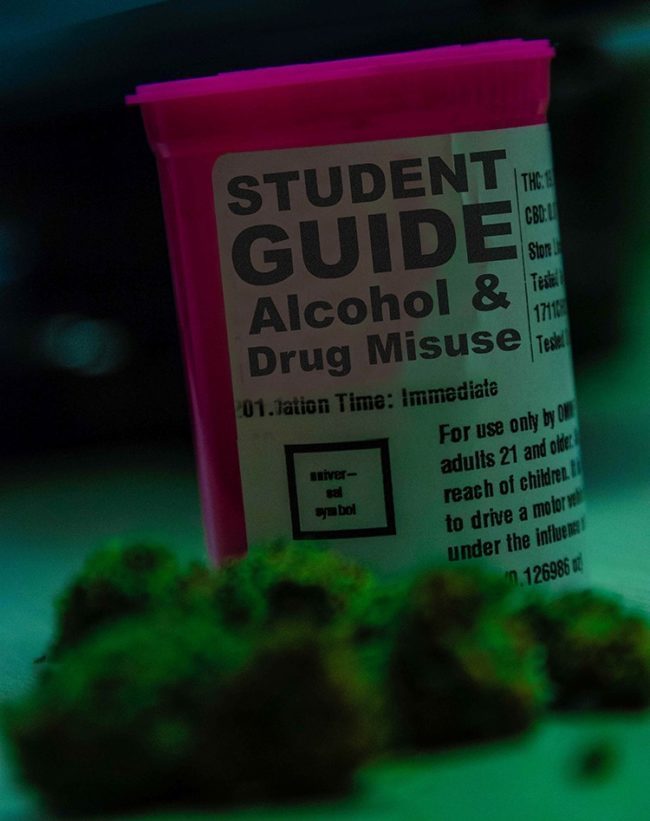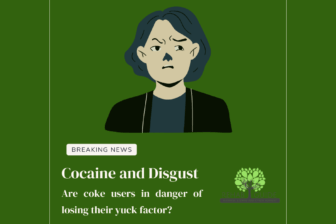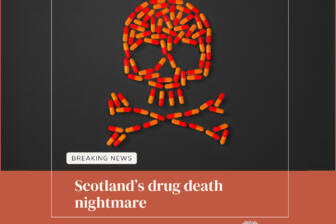Alcohol, Drugs & Student Life
A College Student’s Guide to Drug Abuse
With exams to pass and bills to pay, student life can be a very stressful life indeed. You may find yourself (or know a friend who is) relying more and more on alcohol or drugs to ‘cope’ with day to day stresses. You might even think it’s normal – that lots of other students do it.
The fact is some people can bend the rules, and some people, cannot. You can never really be sure about which group you are.
Relying on drink or drugs to ‘get you through the day’ is a sure sign you may need some help – and you should recognise this – and ACT FAST.
Whether you’re at a party, in a nightclub or lounging in the student union in the afternoon after a lecture, alcohol is ubiquitous when you’re a student. And, of course, there are drugs too.
All sorts. Cannabis, cocaine, ecstasy, MCAT. It’s easy to experiment – particularly when on a night out and inhibitions are lowered and especially then your trusted friends are taking them.
Why are drugs so appealing?
Well, if taking drugs didn’t induce an initial sense of wellbeing, people might not be taking them. It’s not hard to see why alcohol and drugs are used in a recreational setting.
But the fact is, we often take alcohol and other drugs because we want to change something about our lives – and we might not even be aware of it.
The reasons can be many:
- To feel part of…
- To feel a sense of belonging…
- To fit in…
- To escape or relax…
- To relieve boredom…
- To seem grown up…
- To rebel…
- To experiment…
Often, we take alcohol and other drugs because they are a solution to the feelings and reasons listed above. But you may be surprised to learn that for some, as many as one in ten of us, eventually, alcohol and other drugs will become our main problem through addiction.
Why don’t students just say no?
For most people, this may appear to be a relatively simple decision, and everyone will have their own reasons for saying yes or no. We would advise that before you make any decision to get involved with alcohol and drugs – you educate yourself to the risks to your health, relationships and your life.
What’s the difference between recreational use and dependence?
As we know, it can be very difficult to face up to our problems, coping with the added stress of study, attending classes and for more and more students today, holding down a job.
It’s not surprising then that alcohol and other drugs look like an attractive and relatively straightforward, heck even normal way to get a welcome reprieve and release from the difficulties and strains of everyday life.
But often, what starts out as recreational, soon turns out to be habitual.
How do drugs work then?
Alcohol and other drugs are essentially poisons. The amount you take and the purity of these poisons will determine the effect on your body and mind. Most work by changing your brain’s reward system by creating dopamine, a chemical in our bodies that makes us feel good.
Let’s take alcohol, yep, our normal socially-acceptable legal friend alcohol is a poison too, in fact, according to the world health organisation (the authority on these things), it’s the worst and most damaging of all the drugs out there.
How much is too much?
The truth with any drug is that a small amount, generally speaking, will act as a stimulant (speed you up) and a greater amount acts as a sedative (slows you down).
An even larger amount poisons you and take enough in certain circumstances (dehydrating in a hot sweaty club, for instance) could poison you to the extent that you lose your life.
What do drugs do to me?
Alcohol and drugs distort your perception of what is happening inside your body and externally around you. That’s why we so often hear the phrase “oh it was the booze or the drugs talking”.
The result of using any drug is that your reactions may be odd, out of character, irrational, inappropriate, destructive or just downright weird.
Drugs block off your awareness and physical sensations, the desirable ones alongside the unwanted ones too. So, while they may act to provide short-term help in the relief of pain, physical or emotional, they also wipe out our ability to feel the good stuff too.
This obviously affects our alertness and allows certain cloudiness to muddy our ordinary thinking processes.
What about the drugs I get from my doctor or over-the-counter drugs?
Medicines are drugs that are intended to speed up or slow down or change something about the way your body is working (or not working for that matter) and are generally prescribed to try to make your body work better – to introduce a balance, where there is lack of one.
Often, these medicines are necessary, but it’s important to remember that they are still drugs and using recreational drugs such as alcohol, speed, ecstasy, cocaine, or legal highs alongside prescribed drugs can fiercely interfere with their intended purpose and mixing them in this way can be dangerous.
How do drugs affect my memory?
All drugs blur memory, causing blank spots and can cause complete blackouts (short-term memory loss) too.
When we try to get information through the cloudy muddy mess of the night before, we normally only remember snippets rather than the whole memory.
What kinds of illicit drugs will I be offered?
New legal and illegal drugs are being introduced all the time. Many are developed in real labs as “research chemicals” like MDAI in the nineties and now the various legal highs in the noughties.
There are also the commonplace, everyday substances that we don’t even think of as drugs such as the caffeine in tea or coffee, or the more strictly controlled by law like opiates such as heroin that we again may view completely differently to so-called ‘recreational drugs’ such as cannabis.
As a society, we are contradictory and inconsistent in the fact that we accept some drugs as normal and safe and others as dangerous and deviant, none more so than the alcohol-cannabis debate on what is more harmful to individuals and society.
What types of drugs?
Drugs can be broadly divided into three categories based on their main effects:
Stimulants
These drugs make you feel like you have lots of energy and confidence. They include cocaine, speed, ecstasy, poppers and ephedrine.
Depressants
For some people can make you feel relaxed and chilled out. Depressants include alcohol, tranquillisers, heroin and cannabis.
Hallucinogens
Can make you view reality in a distorted way and sometimes cause vivid hallucinations. Hallucinogens include LSD and magic mushrooms.
In addition to these 3 broad categories, each particular drug has its own specific effects and risks.
What about prescription drugs?
It is also safe to say if you get prescription drugs anywhere other than from a high street pharmacy, (best to avoid most online ones as these are not regulated) it can be difficult to say exactly what effects and risks the drug you have purchased or just been offered will have.
Your source is unlikely to have completed their pharmacy degree or been inspected for quality standard or the British kite mark.
Also, with the development and pace of legal highs, their harms may not yet be fully known.
A VERY IMPORTANT thing to remember is the drug you are actually taking may not be what you believe it to be (e.g. both PMA and mephedrone have been sold as MDMA/ecstasy).
What to do if I think I have an addiction to any of the drugs on this page?
If you think you or your friend has a problem, is addicted or is abusing any of these drugs, Contact Rehab Guide today to inquire about home or clinic drug detox and rehab programs available – or for some general advice 02072052845
We are here to help. It is never too late to take the steps to recovery, and it’s never too early to educate yourself (and your friends) to the dangers of addiction.





